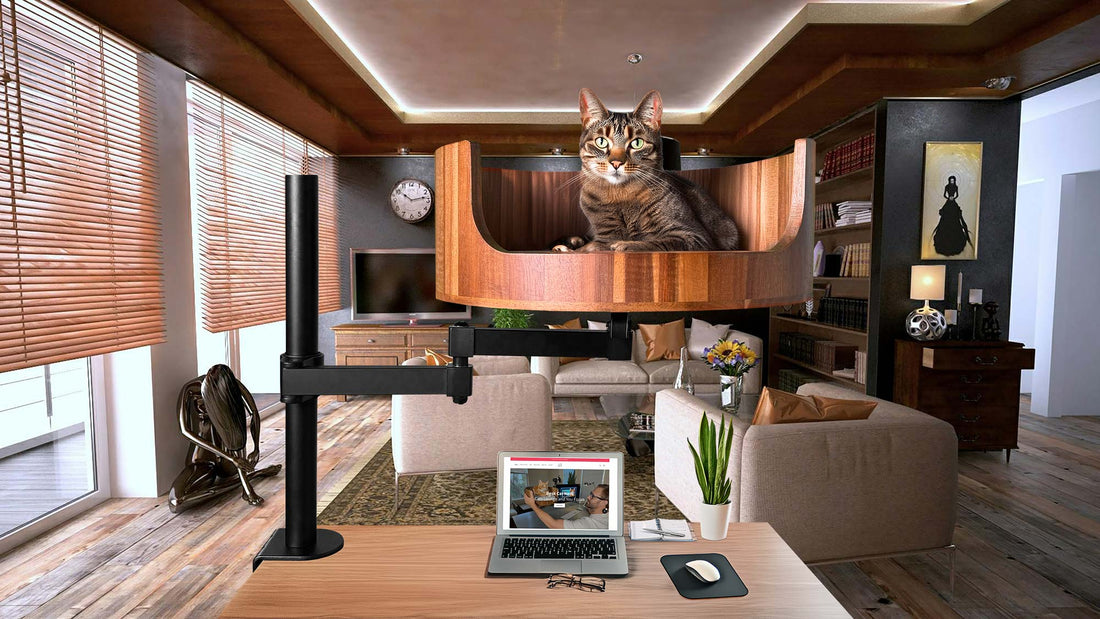
Y Is My Cat Meowing Non Stop: Understanding the Behavior
Share
Have you ever wondered why your cat won't stop meowing? From late-night serenades to constant demands for attention, a cat's non-stop meowing can be frustrating and confusing for pet owners. In this article, we will delve into the reasons behind this behavior, helping you better understand your feline friend's needs and how to address them.
One common factor that may contribute to your cat's incessant meowing is their environment. Cats are highly sensitive creatures and any changes in their surroundings can trigger stress or anxiety, leading to increased vocalization. Additionally, your cat may be trying to communicate something to you through their meows, such as hunger, thirst, or simply wanting some extra affection. By recognizing the underlying reasons for their behavior, you can take steps to create a more comfortable and fulfilling environment for your furry companion. Stay tuned as we explore the various factors that may be causing your cat to meow non-stop and learn how to effectively address this behavior.
1. Cats may meow non-stop for various reasons, including hunger, boredom, attention-seeking, or medical issues.
2. Understanding your cat's body language and vocal cues can help decipher the reason behind their incessant meowing.
3. Providing a comfortable and stimulating environment for your cat can prevent excessive meowing due to boredom.
4. Regular feeding schedules and enriching activities can help curb attention-seeking behaviors that lead to non-stop meowing.
5. If your cat's meowing persists despite addressing basic needs, consult a veterinarian to rule out any underlying health issues causing the behavior.
1. Reasons for Non-Stop Meowing in Cats
Cats have various reasons for meowing incessantly, including hunger, stress, seeking attention, medical issues, or simply communicating with their owner. Hunger is a common cause of non-stop meowing, as cats may vocalize their need for food. Stress or anxiety can also trigger excessive meowing, especially in new environments or during changes in routine. Cats may meow continuously to seek attention from their owners, whether they want to play, cuddle, or simply be noticed. It's essential to rule out any underlying medical issues that could be causing the cat's behavior, such as pain, urinary tract infections, or hyperthyroidism.
2. Ways to Address Non-Stop Meowing in Cats
One way to address non-stop meowing in cats is by ensuring their basic needs are met, such as providing adequate food, water, litter box access, and a comfortable sleep space. Engaging in interactive playtime and providing mental stimulation can help reduce meowing caused by boredom or seeking attention. If stress is a factor, creating a calm and secure environment for the cat, using pheromone diffusers or calming supplements, can help alleviate anxiety. For medical issues, it's crucial to consult a veterinarian to diagnose and treat any underlying health problems contributing to the cat's behavior.
3. Case Study: Desk Cat Nest
One common scenario where cats may exhibit non-stop meowing is when they are kept away from their preferred sleeping spot, such as a cozy desk cat nest. Cats are known for their love of comfortable spaces to nap, hide, or observe their surroundings, and disrupting their routine can lead to increased vocalization. For example, if a cat's usual resting place is a warm and secluded desk cat nest by the window, moving or removing it could result in excessive meowing as the cat tries to convey its discomfort or desire to return to its familiar spot. In such cases, providing a suitable alternative, such as a new cozy bed or creating a similar perch in another location, can help reduce the cat's meowing and restore its sense of security and comfort.
Frequently Asked Questions
Why is my cat meowing non stop?
There are several reasons why your cat may be meowing non stop. It could be due to hunger, thirst, loneliness, or even a health issue. Cats may also meow excessively if they are in heat or feeling stressed or anxious. It is important to observe your cat's behavior and consult with a veterinarian if the meowing persists.
How can the Desk Cat Nest help with my cat's excessive meowing?
The Desk Cat Nest provides a cozy and safe space for your cat to relax and feel secure. Giving your cat a designated space to retreat to can help reduce stress and anxiety, which may in turn decrease excessive meowing. The soft and comfortable material of the Desk Cat Nest can also promote relaxation and calmness in your cat.
Will the Desk Cat Nest stop my cat from meowing altogether?
While the Desk Cat Nest can help create a calming environment for your cat, it may not completely eliminate excessive meowing. It is important to address the underlying reasons for your cat's meowing, such as ensuring they have enough food, water, and mental stimulation. Consistency and patience are key when addressing your cat's behavior.
Can I place the Desk Cat Nest in a high-traffic area of my home?
It is recommended to place the Desk Cat Nest in a quiet and secluded area of your home to provide your cat with a peaceful retreat. Placing it in a high-traffic area may not allow your cat to fully relax and unwind. Choose a location where your cat can feel safe and secure while using the Desk Cat Nest.
In conclusion, providing your cat with a comfortable and cozy space, such as a Desk Cat Bed, can greatly help in reducing excessive meowing behavior. This product offers a secure and soothing environment for your feline friend, allowing them to relax and feel at ease. With its soft padding and elevated design, the Desk Cat Bed not only promotes better sleep and relaxation for your cat but also helps in minimizing stress and anxiety, ultimately leading to a quieter and happier kitty. Invest in a Desk Cat Bed today to create a peaceful and harmonious environment for your beloved pet.



















































